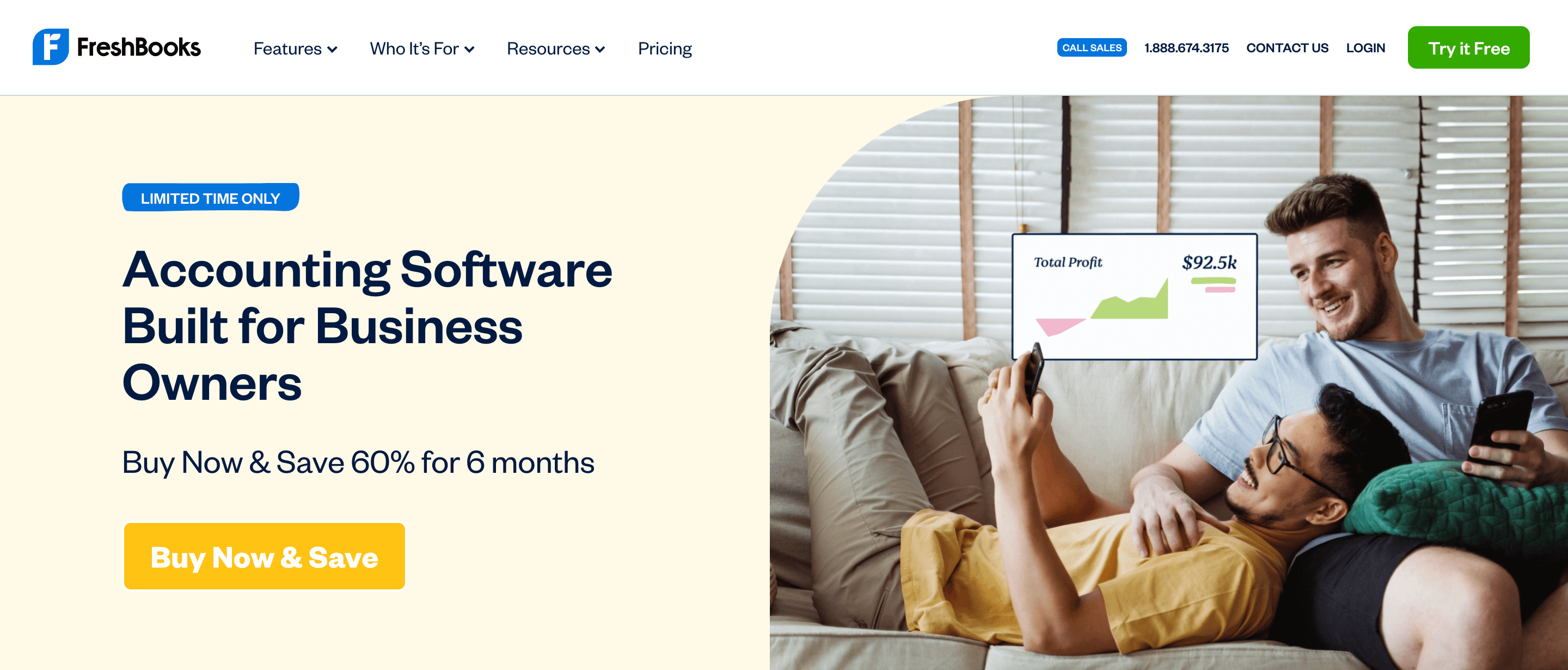Nur wenige Menschen sind in der Lage, sich das nächste milliardenschwere Geschäft auszudenken, und noch weniger verfügen über das nötige Kapital, um diesen Traum zu verwirklichen. Hier kommen Kredite für kleine Unternehmen ins Spiel.
Bonsai hat Ressourcen der Small Business Administration, der Federal Trade Commission und qualifizierter Kreditinstitute analysiert, um diese Liste mit Möglichkeiten zusammenzustellen, wie sich jeder Unternehmer auf die Kreditgenehmigung vorbereiten kann.
Die SBA wirbt damit, dass sie Standardkredite in weniger als 36 Stunden genehmigen kann, aber Finanzinstitute benötigen möglicherweise länger, um Ihnen das Geld tatsächlich auszuzahlen. Herkömmliche Kredite sind möglicherweise schwieriger zu bekommen, aber sie werden schneller bearbeitet, ebenso wie Online-Kreditangebote. Die kleinen Unternehmen von heute sehen sich mit einem wirtschaftlichen Umfeld konfrontiert, das selbst erfahrene Führungskräfte und Wirtschaftsführer verwirrt.
>>Sind Sie bereit, Ihr Unternehmen noch heute zu vergrößern? Probieren Sie Bonsais Geschäftskonto oder Bonsai-Rechnungen und lassen Sie sich schneller bezahlen.
Im Vergleich zu vor der Pandemie haben in den letzten Jahren weit weniger kleine Unternehmen Kredite aufgenommen, um ihr Geschäft auszubauen, wie aus Umfragedaten der Federal Deposit Insurance Corp. hervorgeht . Das Gleiche gilt für SBA-gesicherte Kredite, für die in den letzten drei Jahren im Vergleich zur Zeit vor der Pandemie weniger Antragsteller genehmigt wurden. Gleichzeitig wurden über die regionalen SBA-Büros im ganzen Land Milliarden von Dollar an Bundeshilfen an Unternehmer ausgezahlt, die in den letzten Jahren ihre Mitarbeiter weiterbeschäftigt haben.
Die meisten Kleinunternehmen geben jedoch laut einer Umfrage der National Federation of Independent Business vom Februar 2023 an, dass sie versuchen, mehr Mitarbeiter einzustellen, während sie gleichzeitig ihre Preise erhöhen.
Und wenn Kleinunternehmer keine neuen Mitarbeiter einstellen, versuchen sie zumindest, ihre bestehenden Mitarbeiter zu halten, da diese weiterhin unter dem Druck der Inflation stehen. Laut NFIB gab fast jedes zweite Kleinunternehmen an, im Februar die Löhne erhöht zu haben.
Kredite sind ein Instrument, das Unternehmen nutzen können, um in unsicheren Zeiten Kosten zu decken oder zu expandieren. Auch wenn das derzeitige Hochzinsumfeld potenzielle Kreditnehmer abschrecken könnte, gibt es dennoch Optionen, wenn Unternehmensleiter sich umschauen und sich informieren.

Monkey Business Bilder // Shutterstock
Bestimmen Sie die Art des Darlehens, die für Ihre geschäftlichen Anforderungen am besten geeignet ist.
Unternehmen können zwischen herkömmlichen, Online- und staatlich geförderten SBA-Krediten wählen. Alle haben ihre eigenen Vor- und Nachteile, die ein Unternehmer berücksichtigen muss.
Die SBA unterstützt hauptsächlich drei Arten von Darlehen im Rahmen der Programme 7(a), 504 und eines „Mikrokreditprogramms”. Jedes Darlehen darf rechtlich nur für bestimmte geschäftliche Aktivitäten verwendet werden. Das 7(a)-Darlehen ist das gängigste Darlehen und kann für Grundstücke, Immobilien für ein neues Ladenlokal oder Restaurant, die Aufstockung des Lagerbestands oder die Deckung allgemeiner Betriebskosten und wiederkehrender saisonaler Kosten verwendet werden. Diese Kredite sind in der Regel leichter zu bekommen, bieten jedoch möglicherweise nicht die günstigsten Konditionen. Nur etwa jede zehnte Bank bietet SBA-gesicherte Kredite an, die zwar weniger risikobehaftet sind, jedoch ein Genehmigungsverfahren durchlaufen müssen und aufgrund ihrer festen Laufzeiten möglicherweise nicht so rentabel sind wie herkömmliche Kredite.
Ein herkömmlicher Bankkredit kann mit strengeren Anforderungen verbunden sein, wie beispielsweise höheren Bonitätsanforderungen oder einem höheren Verhältnis von Schulden zu Einkommen, aber er bietet in der Regel auch die günstigsten Zinssätze. Online-Kreditgeber haben geringere Anforderungen an die Qualifikation für alle Optionen und bieten eine schnelle Genehmigung und Auszahlung des Geldes. Unternehmer müssen jedoch ihre Hausaufgaben machen, um sicherzustellen, dass sie sich über versteckte Gebühren, weniger günstige oder wettbewerbsfähige Konditionen und höhere Zinssätze im Klaren sind.

fizkes // Shutterstock
Verbessern Sie Ihre Kreditwürdigkeit und Ihr Verhältnis von Schulden zu Einkommen.
Kreditvergabe basiert auf Vertrauen, und Vertrauen wird durch eine lange Geschichte der Rückzahlung aufgebaut. Bevor Sie den nächsten Kredit aufnehmen, sollten Sie Ihre finanzielle Situation überprüfen.
Wie hoch sind Ihre Schulden bereits? SBA-Kredite bieten den zusätzlichen Vorteil, dass weniger Sicherheiten erforderlich sind. Unbezahlte Schulden können jedoch weiterhin Ihre Fähigkeit beeinträchtigen, einen weiteren Kredit aufzunehmen, unabhängig von der Art des Kredits.
Eine Kreditlinie über eine Bank, die ein Geschäftskreditkartenprodukt anbietet, ist eine weitere Option für kleine Unternehmen, die ihre Ausgaben decken und gleichzeitig ihre Bonität aufbauen möchten. Sie können die FICO-Kreditwürdigkeit Ihres Unternehmens kostenlos online überprüfen.

Dragana Gordic // Shutterstock
Die Größe kann eine Rolle spielen, wenn es um Ihre Bankgeschäfte geht.
Es ist wichtig zu beachten, dass Unternehmer unterschiedliche Zufriedenheitsraten mit Krediten von Banken unterschiedlicher Größe angeben. Kleine Unternehmen, die bei kleinen Banken Bankgeschäfte tätigen und Kredite aufnehmen, gaben laut einer Umfrage der Federal Reserve unter 11.000 kleinen Unternehmen im Jahr 2021 eine höhere Zufriedenheit an als solche, die mit größeren Banken Geschäfte machten. Kleine Unternehmen, die mit Online-Kreditgebern zusammenarbeiten, gaben eine Zufriedenheitsrate von 34 % an.

mavo // Shutterstock
Wissen, wie räuberische Kreditbedingungen aussehen
Die SBA empfiehlt Kreditnehmern, sich umzuschauen, um sicherzustellen, dass der Kreditgeber, mit dem sie zusammenarbeiten, wettbewerbsfähige Zinssätze und Gebühren anbietet. Die Behörde warnt davor, dass die Gebühren einer Bank für einen Kredit 5 % des Gesamtwerts des Kredits nicht überschreiten sollten. Es wird außerdem empfohlen, vor der Unterzeichnung von Kreditverträgen mit Ihrem Anwalt zu sprechen, selbst bei von der SBA zugelassenen Institutionen.
Denken Sie daran, dass Kreditgeber Ihnen gemäß dem Equal Credit Opportunity Act keinen Kredit aufgrund Ihrer ethnischen Zugehörigkeit, Ihres Glaubens, Ihrer Nationalität, Ihres Geschlechts, Ihres Familienstands oder der demografischen Merkmale Ihrer Kunden verweigern dürfen.

Southworks // Shutterstock
Bereiten Sie Ihre Unterlagen vor
Wenn Sie eine Start-up-Idee finanzieren möchten, sollten Sie auch einen Geschäftsplan vorbereiten. Wenn Sie ein derzeit operierendes Unternehmen finanzieren möchten, sollten Sie aktuelle Bilanzen und Finanzprognosen erstellen, um diese den Kreditgebern vorzulegen. Bankangestellte werden wissen wollen, was Sie mit dem geliehenen Geld vorhaben und wie Sie es zurückzahlen werden.
Für SBA-Kredite ist ein spezielles Formular namens „Formular 1919” erforderlich, zusätzlich zu den anderen Formularen, die ein Kreditgeber von Ihnen verlangen kann. Das Formular verlangt von Unternehmen die Angabe von Informationen über alle Komplementäre und Kommanditisten sowie über Eigentümer von mehr als 20 % des Unternehmens.

Drazen Zigic // Shutterstock
Geben Sie Ihrem Unternehmen ausreichend Zeit.
Die Genehmigung eines Kleinkredits für Unternehmen kann je nach Art des Kreditgebers und der Art des Kredits zwischen einigen Stunden und mehreren Monaten dauern.
Wenn Ihr Unternehmen sofort Bargeld benötigt, sollten Führungskräfte die „Express“-Kreditoptionen der SBA sowie herkömmliche und Online-Kreditoptionen in Betracht ziehen – und sich bewusst sein, dass einige Online-Kreditgeber möglicherweise kürzere Rückzahlungsfristen bevorzugen.
Wenn Sie sich für eine SBA-finanzierte Finanzierung entschieden haben, müssen Sie sich auf eine Wartezeit einstellen. Auch wenn die SBA angibt, dass sie Ihren Kredit innerhalb weniger Tage genehmigen kann, kann es länger dauern, bis der tatsächliche Kreditgeber Ihnen das Geld zur Verfügung stellt. Die Citizens Bank, die in 14 Bundesstaaten tätig ist, schätzt, dass es etwa anderthalb Monate dauern kann, bis ein typischer SBA-gesicherter Kredit abgeschlossen ist.







